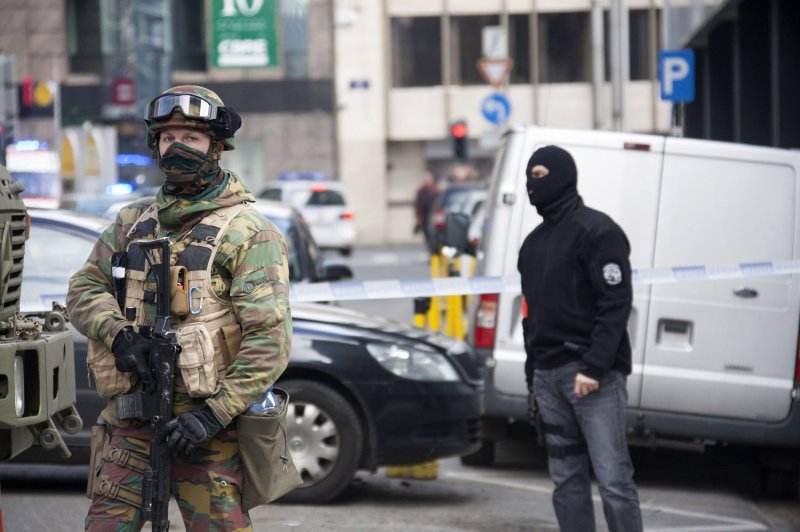Lingering security concerns in Europe after Tuesday's terrorist attacks on Brussels added to supply-side pressures on the energy market, sending crude oil prices sharply lower in Wednesday morning trading. Photo by Diego Ravier/UPI |
License Photo
NEW YORK, March 23 (UPI) -- Doubts over the impact of a proposal to freeze oil production levels, supply-side pressures and lingering security concerns dealt oil prices a blow Wednesday.
Crude oil prices faltered Tuesday after the Islamic State terrorist group took credit for bombings in Brussels. The attacks followed the arrest last week in the Belgian capital of Salah Abdeslam, one of the suspects tied to last year's terrorist attacks in Paris, and prompted the U.S. State Department to issue a travel advisory for all of Europe.
"Terrorist groups continue to plan near-term attacks throughout Europe, targeting sporting events, tourist sites, restaurants, and transportation," the alert stated.
The threat level renewed concerns about broader stability in Europe, with shares in regional stock indices closing mixed in the wake of Tuesday's attacks.
Pressure on crude oil prices emerged after the American Petroleum Institute showed a rise in U.S. oil inventories. Evidence of more supply-side strains surfaced later when Iran said oil exports are up 900,000 barrels per day since the start of the year, when sanctions pressures eased in response to last year's multilateral nuclear agreement.
The price for Brent crude oil fell 1.4 percent at the start of trading in New York to $41.19 per barrel. West Texas Intermediate, the U.S. benchmark price for crude oil, lost 1.8 percent to open at $40.69 per barrel.
Iran's return balances against a proposal from Russia and some members of the Organization of Petroleum to freeze production at January levels in an effort to stabilize the market. Neil Atkinson, the head of the oil market division at the International Energy Agency, was quoted by Bloomberg News as saying at an energy conference in Singapore he was questioning whether an April meeting to consider the freeze will even take place.
Atkinson told UPI last month the IEA was studying the proposal, "but at this stage it appears that the number of barrels that will flow into the market during the first half of 2016 is unchanged."















